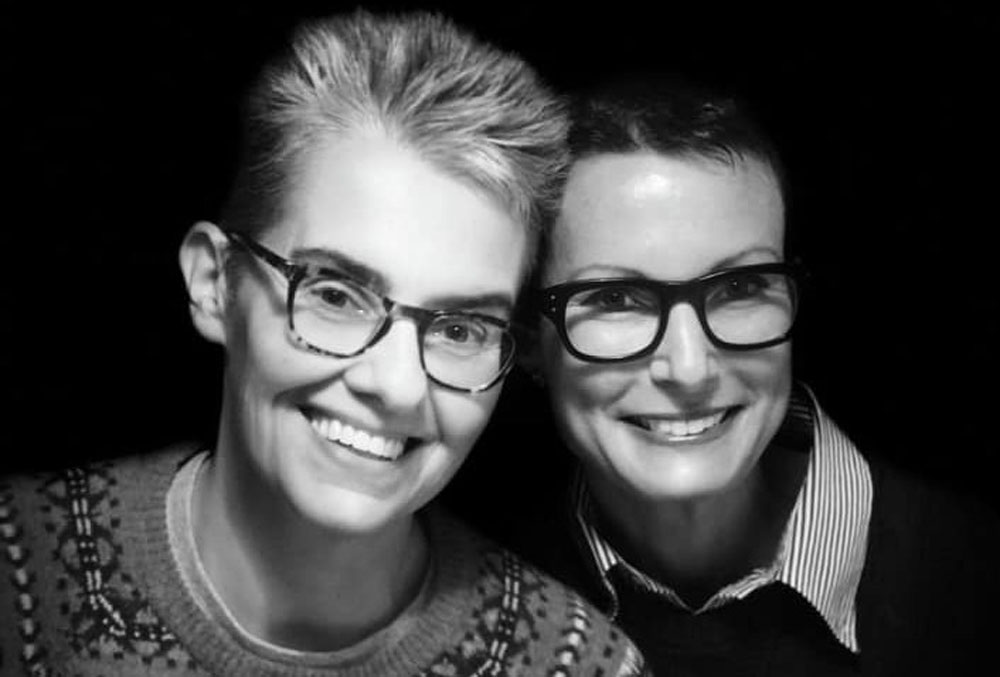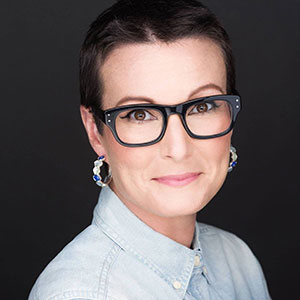
In Her Own Words
On August 4, 2018—a little more than a year ago—
I was driving with my family back to Washington, D.C., after an incredible two-day visit to UVA. During our time on Grounds, my wife Kathy and our son Greyson fell head-over-heels in love with the University, much as I had months earlier when I first visited as a guest speaker at UVA’s inaugural LGBTQ+ Health Symposium.
That car ride home was an exciting one, as we chatted about what a move to Charlottesville would look like for our family. Greyson, then 18, was just weeks away from starting his freshman year at Emerson College. I was intrigued by the possibility of teaching and doing research with the stellar faculty I’d met. And Kathy owned her own consulting business and worked from home, so a move to Charlottesville would be completely doable. The timing couldn’t have been more perfect. The future brimmed with possibility.
Six months later, in January 2019, Kathy was diagnosed with what we soon learned was stage III clear cell ovarian cancer. The two of us have spent the entirety of our careers working to improve end-of-life care as educators, consultants, and mentors to future clinicians, so when we found out Kathy had about six months to live, we decided to share her illness, dying, and death on social media.
There was nothing we could do to cure Kathy’s cancer, but there was plenty we could do to demystify living while dying, and show the power of high-quality palliative care.
Kathy had surgery in February. At that point, given that we knew Kathy’s cancer could not be cured with any of today’s treatment protocols, we decided as a family that her sole treatment would be aggressive palliative care. A few weeks later, the cancer had spread to her liver, advancing to stage IV.
March, April, May, and June were a blur. In addition to Kathy’s health and caregiving needs, the infinite details of life carried on: Greyson wrapped up his spring classes in Boston. We renovated our house there in preparation for selling it. We then sold our house, and bought another in Charlottesville (sight unseen!). In mid-June, we moved into our new home with our dogs, Dizzy and Mitzi.
Through it all, Kathy was dying, and we both kept tweeting. Through social media, we invited people—many of them strangers—into our daily lives. Kathy shared what it felt like to have her body betray her, and how strange it felt to be a “dead woman walking.” I shared my perspective as her caregiver and spouse, and periodically, our son would offer his perspectives as well. What used to be our life’s work—advocating for high-quality, LGBTQ+ inclusive hospice and palliative care—had become our life and our story.
Throughout the six weeks we were in Charlottesville, before Kathy died, the School of Nursing wrapped its arms gently around my family, showing us what “compassion in action” looked like. Every few days, we’d receive an email, text, a card, an unanticipated delivery of food, a Twitter direct message, or visit from one of my new colleagues. Every time that happened, Kathy would say to me, “See? I told you coming here was the best decision in the world.”
Kathy died at home in Charlottesville on August 4, 2019, exactly one year to the day after our family’s optimistic car ride home. During Kathy’s illness, and after her death, Greyson and I have felt UVA’s unobtrusive but ever-present support. During my first week on Grounds, a heartfelt expression of sympathy from President Jim Ryan left me both speechless and grateful. The way a community addresses the illness, death, and grief of one of its members is a powerful manifestation of the compassion underpinning its educational philosophy. By this measure, there is no university more compassionate than UVA.
Today, with the fall semester well underway, my love for UVA and the School of Nursing continues to grow. I feel incredibly fortunate to be part of this UVA family, and I’m grateful for the support my family has received over the past six months.
And you know what? Kathy was right: coming to UVA was the best decision in the world.

Kimberly D. Acquaviva, PhD, MSW, CSE—the Betty Norman Norris Endowed Professor at UVA—has spent her career focused on aging, palliative care, and end-of-life issues as a scholar and teacher, particularly for LGBTQ patients and families. Her book, LGBTQ-Inclusive Hospice & Palliative Care (Huntington Park Press: 2017), earned the American Journal of Nursing’s Book of the Year Award in 2018 in the Palliative Care and Hospice Category, and Acquaviva’s “em-dash” podcast explores the lived experiences of patients and healthcare professionals. Acquaviva earned a PhD in human sexuality education, an MSW, and a BA from the University of Pennsylvania, and is an AASECT-Certified sexuality educator. At UVA, she teaches health policy and the Distinguished Majors Program seminar and is a teacher, facilitator, and participant in the Center for Interprofessional Collaborations.

